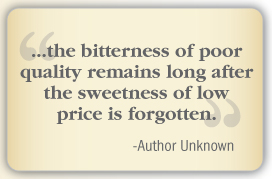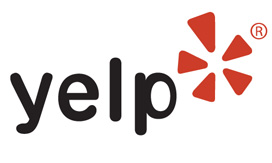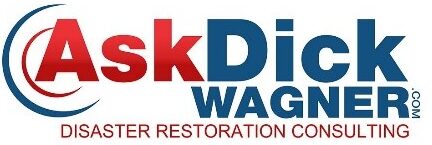Price higher, add real value, then learn to sell value.
 Everyone wants to know they are charging the right price. (Nobody wants a loss, and we don’t want to “leave money on the table). The right price should fall between your actual cost and the value you offer to customers. Within this range, your prices should be closer to the value of what you’re selling.
Everyone wants to know they are charging the right price. (Nobody wants a loss, and we don’t want to “leave money on the table). The right price should fall between your actual cost and the value you offer to customers. Within this range, your prices should be closer to the value of what you’re selling.
Corporate customers often won’t buy from small, unproven businesses even when the price is substantially lower. They want dependability, capability (as in being able to deliver everything that’s promised), and stability (being there when you need it); and they usually want high-touch service. Generally, they are willing to pay accordingly. Many entrepreneurs start with costs to determine price, but if customers value your product more than that of your competitors, they will pay more.
 Also, high-end customers need high-level benefits and will pay more for those benefits. Your primary focus should be on the value and benefits you offer and price your services accordingly. Your customers will only pay the higher price if they perceive a real value in what you’re selling.
Also, high-end customers need high-level benefits and will pay more for those benefits. Your primary focus should be on the value and benefits you offer and price your services accordingly. Your customers will only pay the higher price if they perceive a real value in what you’re selling.
Much of the perceived value is derived from your skill at identifying and promoting your differentiation! If you aren’t different from the competition, there’s no reason they need to buy from you – at any price. The reality is: Lower prices won’t always mean higher volume. Sometimes a low price can create doubt about your value. Customers often tend to believe “you get what you pay for.”
If you want to be a good businessman, don’t pursue a low-cost strategy unless you truly are offering a commodity product that cannot be differentiated at all from the competition. Instead, develop a strategy around differentiating your product from the competition strategy, that’s much better than selling your services too low.
American consumers are used to cheap products but not cheap services, so think about offering unusually exceptional services.
Five Reasons Pricing Low Is A Big Mistake:
- Competitors can lower their prices, too. If competitors are game, they’ll also drop their prices until you (and/or they) are no longer in business.
- The transparency of the Internet lets consumers check your service rating or reputation. (Yelp, Merchant Circle, Angie’s List, ConsumerSearch.com, epinions.com) and others. One of my clients proudly maintains a very high YELP rating and enjoys high-end customers at high-end prices.
- Mistakenly thinking that by having the lowest price, you will sell more. Maybe, but we’ve already talked and written about selling more at a lower price, or less at a higher price, and you find a spot in the middle where you’ll sell less, at a higher price, and make more.
- Perception of quality gets lower. A lower price infers that the quality of the service is actually low or that it isn’t worth paying the premium price.
- Customer service suffers. Low-profit margin forces you to operate on a low budget; you can’t afford to hire the support staff to maintain a high level of customer service. Yes, even discount store shoppers want good service. The problem is they don’t get the same level of service at Walmart, but they usually do at Macy’s.
 We teach Sales and Marketing classes around the country and routinely ask the attendees what “makes them different.” Amazingly, few have identified a real differentiator for their services. Often they admit they are really no different from their competitor. WOW. We’re usually told they get the work because they offer the lowest price.
We teach Sales and Marketing classes around the country and routinely ask the attendees what “makes them different.” Amazingly, few have identified a real differentiator for their services. Often they admit they are really no different from their competitor. WOW. We’re usually told they get the work because they offer the lowest price.
When we take them aside and ask how well they’re doing financially… cash flow, collections, profit, they will confide that “things aren’t that great. Then they say if they don’t lower their price somebody else will get the job. What a stupid belief and foolish strategy.
P. Campbell of Price Intelligently.com says “Blindly discounting is one of the worst things you can do, because you’re conditioning your customer into de-valuing your product, and you’re literally throwing money away by putting it back on the table from the initial and future sales with that customer.”
 Personally, I’ve watched contractors around the country try to compete with low-priced disaster clean-up services and it almost always fails. One contractor had a brainstorming idea that he would contact every insurance adjuster and offer to price his air movers at $5.00 per day as an incentive for the adjuster to use his company. Two brutal things happened: first, the adjusters saw it as an opportunity to get him to drastically reduce the price of his other equipment and services, and second, this company went out of business within a few months.
Personally, I’ve watched contractors around the country try to compete with low-priced disaster clean-up services and it almost always fails. One contractor had a brainstorming idea that he would contact every insurance adjuster and offer to price his air movers at $5.00 per day as an incentive for the adjuster to use his company. Two brutal things happened: first, the adjusters saw it as an opportunity to get him to drastically reduce the price of his other equipment and services, and second, this company went out of business within a few months.
Remember that price is an easy thing to match by your competition. Much more difficult for competitors to do is to offer the same high-end high-touch additional value service that you can provide your customers. A simple example is offering a “concierge” service to customers displaced from their homes after a disaster. Sure, the competitor “could” start doing it, but it would be unlikely and possibly require them to spend significantly more money to achieve the same thing you offer.
I have a client with a stellar YELP reputation (Yelp rating of 4.95 stars) and they enjoy both high-end clients and high-end prices and profits. The opposite is a client I was hired to train and found their BBB and Merchant Circle ratings were dismal. Needless to say, part of why they contacted me was to help solve their poor sales and poor profit standing. Hmmmm.
Poor or No Communication is one of the top complaints from customers in the disaster recovery industry. Simply putting someone in charge of first-class, overwhelmingly good communications with your customers would rapidly change the paradigm of perception by your customer. I’m not naïve though and understand you will always have a customer that simply can’t be satisfied. As I teach in my marketing program: “cheap customers are usually difficult, cheap customers are usually unreasonable, LET YOUR COMPETITION HAVE THEM.”
Author: Dick Wagner, National Marketing Coach, and Consultant
Restoration Marketing Coach 419-202-6745
